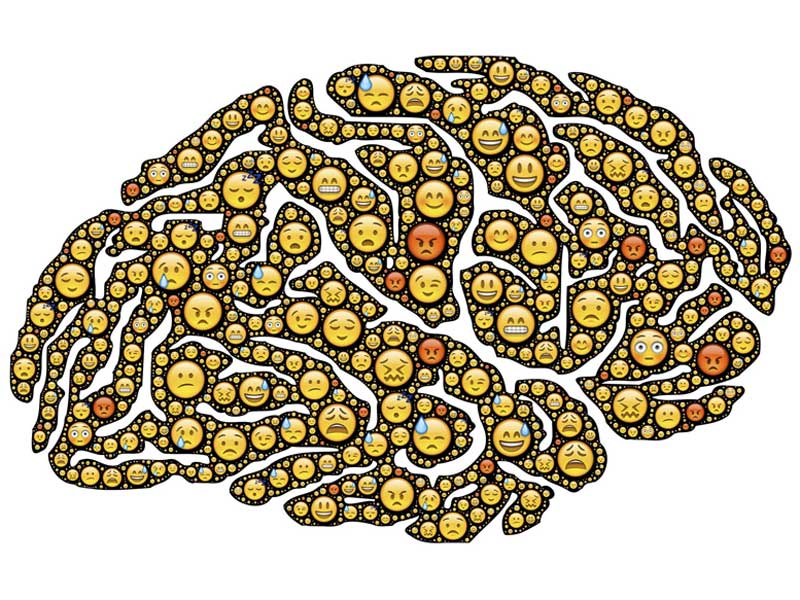
Mood swings and anger during menopause – it’s become almost a cliché. After all, who can go from laughter to rage in a split second? A menopausal woman! Not only that, but before you can blink an eye, a menopausal woman can burst into tears.
Sound familiar? Are you a woman between age 35 and 50? Do you feel like Tarzan swinging through the emotional jungle without a net? Then you’re probably experiencing mood swings.
Mood swings are aptly named because they’re sudden, dramatic, emotional shifts that seem like they come on for no reason. The good news is there’s a reason, and much of the time, this reason can be treated.
What Causes Mood Swings?
Think about other times in life when you, your friends, or your family have experienced mood swings, and you’ll see a common thread. Can’t think straight right now? No problem. Here’s a short list:
- Premenstrual Syndrome (PMS)
- Premenstrual dysphoric disorder
- Stress
- Psychiatric causes
- Hormonal Imbalance
- Andropause (Male Menopause)
- Menopause
- Puberty
- Pregnancy
What do these all have in common? First, they are transition periods during which women and men experience a hormone imbalance. Hormone shifts and imbalances are a natural part of the aging process. When one hormone goes out of balance, other hormones follow, and before you know it, you’re not feeling like yourself anymore.
As women hit their late 30s to early 50s their estrogen levels fall, and perimenopause kicks in. Perimenopause symptoms can include hot flashes, mood swings, rapid emotional shifts, night sweats, reduced sex drive, and vaginal dryness.
And it’s not just women who experience moods swings when they have a hormone imbalance. Men do too!
Before you get upset…
There are many ways to help stabilize your mood. You may have already figured out that trying to control the emotional shifts doesn’t work. Stabilizing your mood requires starting with the basics.
Change Your diet
We have been taught to eat three square meals per day, but it turns out that eating smaller meals more often may be better for mood stability. After a large meal, blood sugar shifts may contribute to rapid emotional shifts and mood swings. Smaller meals, divided throughout the day, may help stabilize your blood sugar to keep these rapid mood swings at bay.
Exercise Regularly
Not only are moving and exercising great for your physical and mental health, but they can also help you treat or prevent mood swings. The reason for this is simple. When you exercise, your body produces endorphins and feel-good hormones that assist in alleviating your stress, and boost mood. Thirty minutes of moderate exercise five days per week should be enough for you to start feeling a difference.
Avoid Caffeine, Alcohol, and Processed Sugar
Stimulants and depressants can make mood swings worse or even cause them in the first place. You may feel great after that first sip of coffee, but that cup of Joe may throw you into a fit of anxiety, panic, or nervousness.
On the other hand, alcohol is a depressant that can make you crash to the bottom of the pit, worsen bad moods, or make you behave irrationally.
Foods that contain sugar affect your blood sugar level. Fluctuations in blood sugar can cause mood swings and other symptoms. Avoiding these may be difficult or uncomfortable at first, but after your body gets back in balance, you may find the discomfort was worth it!
Manage Your Stress to Avoid Mood Swings
Stress creates cortisol. Cortisol wreaks havoc on your hormones, which will wreak havoc on your emotions and your life. If you’re always worried, irritated, or otherwise stressed out, learning to manage the stress will do two things. It will not only help decrease mood swings but can assist in weight loss, increase brain function, and improve the overall state of your health.
So, what can you do to decrease the stress in your life? There are lots of things, but here are some important ones:
- Meditation
- Breathing practices
- Yoga
- Tai Chi
- Massage therapy
- Talk therapy
Honor a Good Night’s Sleep
Remember what your parents said? Get to bed on time! They weren’t just trying to get the TV back. There’s scientific proof that this wisdom can keep you out of physical, emotional, and mental distress.
However, not enough sleep can leave you feeling anxious, irritable, exhausted, and even wired. Mood swings are an inevitable consequence of exhaustion. If getting 8-9 hours of sleep per night seems impossible or overwhelming, start by adding 30 extra minutes to your sleep cycle by going to bed half an hour earlier than you usually would. When that becomes second nature, add 30 minutes more.
Yeah, yeah, yeah. I’ve heard all of this before…
Are you near tears or clenching your fists right now because you’ve tried everything and nothing is working? Have you tried Bio-Identical Hormone Replacement Therapy?
Doctors often treat the symptoms experienced by peri-menopausal women with hormone replacement therapy, because increasing your sex hormones back to normal levels relieves the symptoms caused by an imbalance.
What is BHRT?
Bioidentical hormones are formulated from natural plant sources, like yams. They are made to match the molecular structure of the natural hormones present in your body. That means that bio-identical hormones can bind to your body’s hormone receptors in the same way as your naturally occurring hormones. As a result, BHRT dosages can be tailored to your body’s unique needs to achieve optimal hormone levels.
Are Mood Swings Taking Over Your Life?
Come and see us! We’ll start with an in-depth self-assessment and comprehensive wellness diagnostics to find the underlying cause of your symptoms.
For example, suppose your Nava practitioner determines that you have a hormone imbalance that can be treated with BHRT. In that case, they’ll work with you to perfect your treatment plan by using an integrated approach that includes supplements and lifestyle changes. Both of these could help alleviate your symptoms.
Hormone imbalance is treatable! Call us for an appointment today!
PS: We won’t judge you if you’re crying when you call…
Resources

A Medical Director, and one of the first physicians to join the Nava Health & Vitality Center, Dr. Douglas Lord has made significant contributions to our Center and its founding principles. Dr. Lord has helped develop and implement the Nava Method™—Nava’s proprietary approach to total body wellness. He has also been instrumental in liaising with other expert practitioners to successfully implement Nava’s range of therapies, treatments, and products.